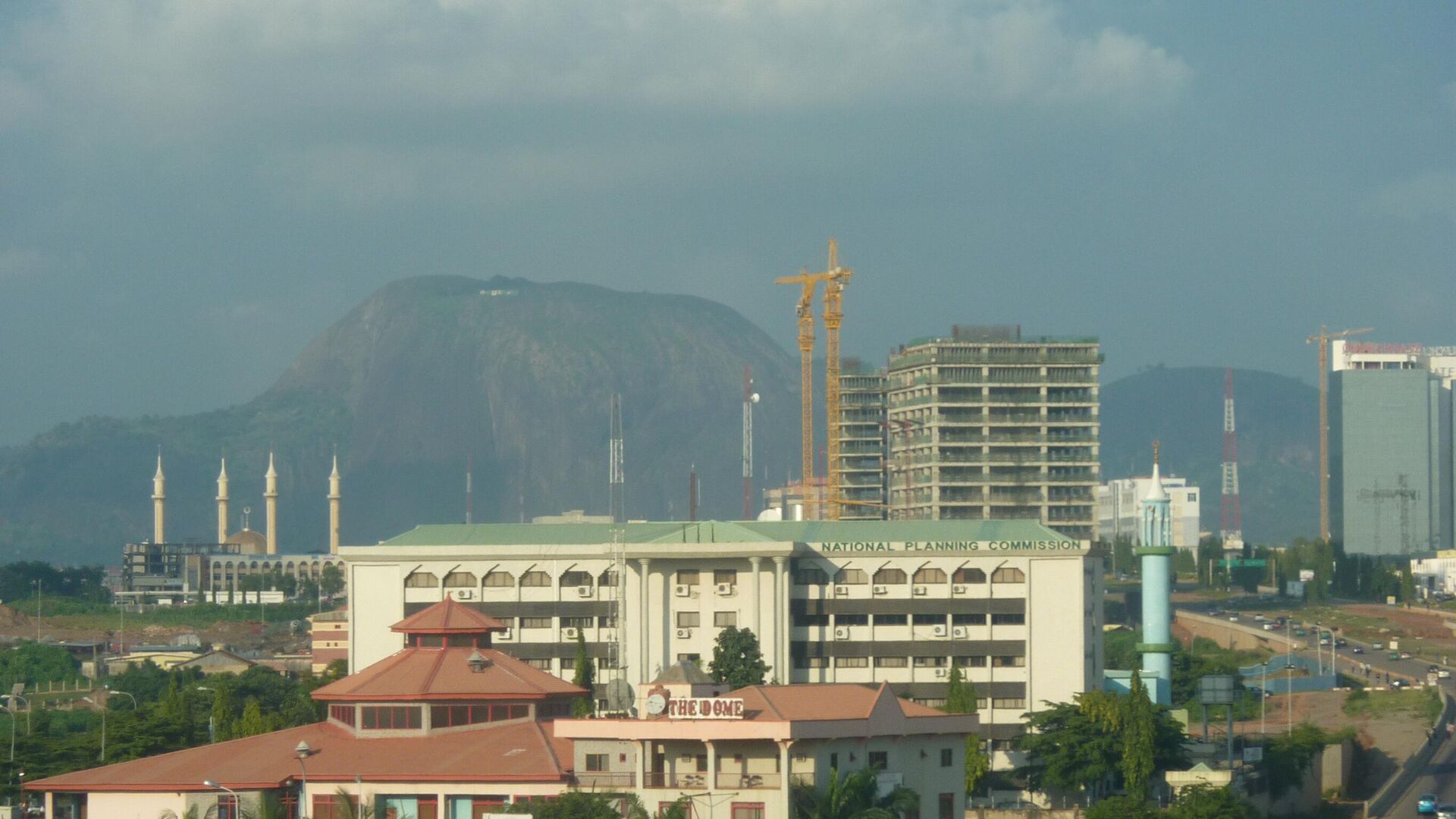https://en.sputniknews.africa/20231014/nigerian-capital-abuja-reportedly-gets-financial-autonomy-from-national-govt-1062783843.html
Nigerian Capital Abuja Reportedly Gets Financial Autonomy From Federal Gov't
Nigerian Capital Abuja Reportedly Gets Financial Autonomy From Federal Gov't
Sputnik Africa
Abuja, which was designated as the national capital in 1991, is located in the geographical center of Nigeria and is home to nearly 4 million people. It lies... 14.10.2023, Sputnik Africa
2023-10-14T11:45+0200
2023-10-14T11:45+0200
2023-10-14T11:51+0200
sub-saharan africa
west africa
bola tinubu
nigeria
finance
economy
politics
government
https://cdn1.img.sputniknews.africa/img/07e7/08/12/1061425333_0:257:2730:1793_1920x0_80_0_0_edd16b131c182c6787f8037e78b42693.jpg
President Bola Tinubu has granted financial autonomy to the capital city of Abuja, enabling it to function similarly to Nigeria's 36 states, media has reported, citing government officials familiar with the move.According to the report, the measure falls short of granting statehood to the city but empowers Abuja to oversee finances that are currently under national government management. Thus, the city will now have greater control over its finances, allowing it to make independent decisions. The move is expected to improve the city's overall financial management and lead to more efficient and effective delivery of public services.The media also reported that Tony Ogunleye, the Federal Capital Territory Administration's spokesperson, had confirmed the decision and specified that a statement regarding the matter would be released at a later time.The city is expected to create its own civil and judicial service commissions, as well as agencies for internal revenue and taxes. Although it will not possess legislative powers, it will be entirely separate from the federal bureaucracy, the report added.Abuja, a planned city built mainly in the 1980s, replaced Lagos, the country's most populous city, as the capital in December 1991. The city serves as Nigeria's administrative and political capital, playing a key role as a major capital on the African continent due to Nigeria's geopolitical influence in regional affairs. In particular, it is an important venue for conferences, hosting multiple meetings on an annual basis.
https://en.sputniknews.africa/20231001/nigeria-announces-measures-to-offset-rising-costs-1062462545.html
west africa
nigeria
Sputnik Africa
feedback@sputniknews.com
+74956456601
MIA „Rossiya Segodnya“
2023
News
en_EN
Sputnik Africa
feedback@sputniknews.com
+74956456601
MIA „Rossiya Segodnya“
Sputnik Africa
feedback@sputniknews.com
+74956456601
MIA „Rossiya Segodnya“
west africa, bola tinubu, nigeria, finance, economy, politics, government
west africa, bola tinubu, nigeria, finance, economy, politics, government
Nigerian Capital Abuja Reportedly Gets Financial Autonomy From Federal Gov't
11:45 14.10.2023 (Updated: 11:51 14.10.2023) Abuja, which was designated as the national capital in 1991, is located in the geographical center of Nigeria and is home to nearly 4 million people. It lies within the Federal Capital Territory (FCT), created in 1976 and administered by a minister appointed by the presidency.
President Bola Tinubu has granted financial autonomy to the capital city of Abuja, enabling it to function similarly to Nigeria's 36 states, media has reported, citing government officials familiar with the move.
According to the report, the measure falls short of granting statehood to the city but empowers Abuja to oversee finances that are currently under national government management.
Thus, the city will now have greater control over its finances, allowing it to make independent decisions. The move is expected to improve the city's overall
financial management and lead to more efficient and effective delivery of public services.
The media also reported that Tony Ogunleye, the Federal Capital Territory Administration's spokesperson, had confirmed the decision and specified that a statement regarding the matter would be released at a later time.
The city is expected to create its own civil and judicial service commissions, as well as agencies for
internal revenue and taxes. Although it will not possess legislative powers, it will be entirely separate from the federal bureaucracy, the report added.
Abuja, a planned city built mainly in the 1980s, replaced Lagos, the country's most populous city, as the capital in December 1991. The city serves as Nigeria's administrative and political capital, playing a key role as a major capital on the African continent due to Nigeria's geopolitical influence in regional affairs. In particular, it is an important venue for conferences, hosting multiple meetings on an annual basis.


